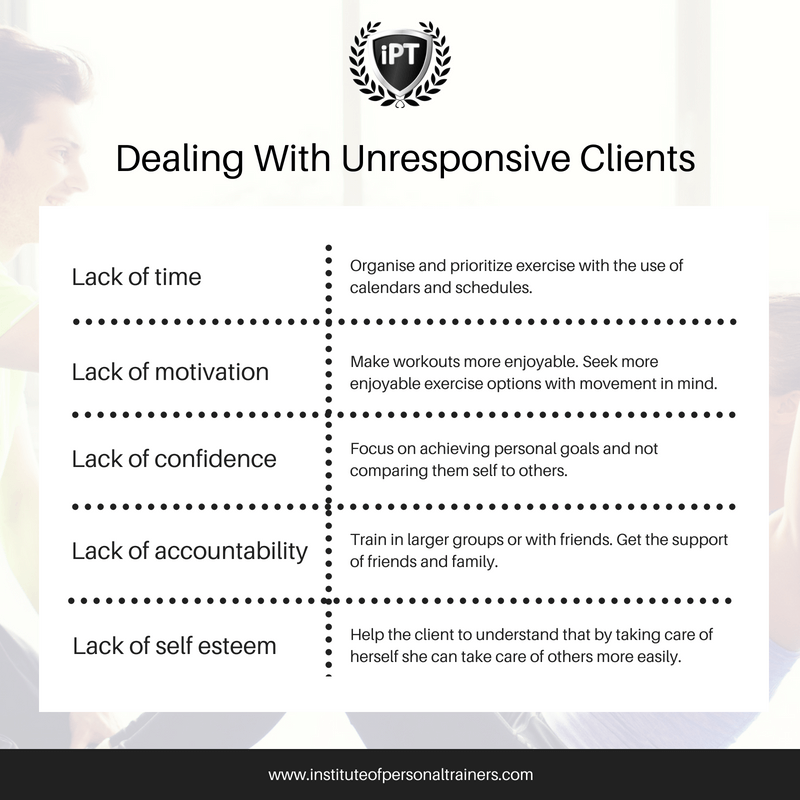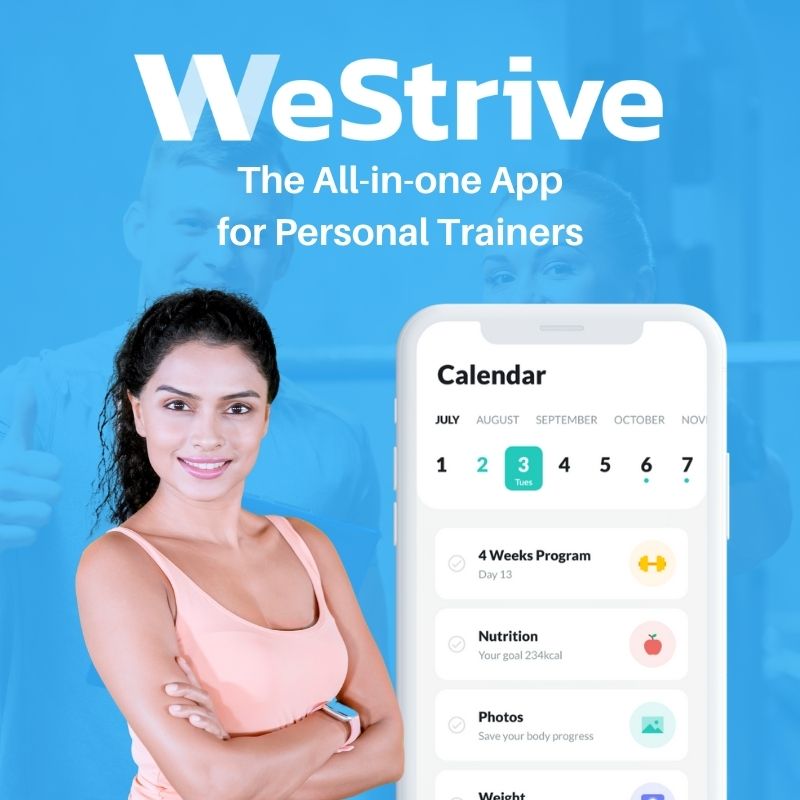|
FREE GUIDE: HOW TO LAUNCH AN ONLINE PERSONAL TRAINING BUSINESS
IN JUST 7 DAYS
✓ The new, better way of launching an online business
✓ The fastest way to create in irresistible offer ✓ A simple system to sell to clients who are interested |
|
Have you ever had a client go completely dark on you? One week they’re checking in, logging their food, messaging you regularly and the next, nothing. It’s actually pretty common so before you start beating yourself up for being a terrible coach remember that it happens and give yourself a minute to take a breath. It’s time to walk a mile in your clients shoes. Why Clients Go DarkClients go dark for lots of reasons that can vary from simply missing your emails to feeling massive amounts of overwhelm. Here are just a few and what to do about it BEFORE a client goes dark: Missed emails are often easy to deal with, but when a client doesn’t respond for weeks at a time despite your consistent follow ups, then you can be pretty sure there’s a more serious problem.
So many things happen in our client's lives outside of the 1-4 hours you get to spend with them each week and let’s face it, your job is to make things easier for them, not harder. So the first step is to stop what you’re doing. Step 1 - Stop What You’re DoingIt’s tempting to just go with the flow and continue sending your workouts and messages to a client. After all, that is what they paid for, right? Step in to her shoes. Whatever is going on in her life right now, follow ups about how she's behind on her workouts won't help. Nor will more workouts. Forget about all of the things she hasn't done and take a minute to think about what could be going on in her life that’s made her go dark on you. You might know what it is, you might not. But you’re not a psychotherapist, you’re a personal trainer. Your job right now is no longer to deliver workouts, it’s to create opportunities for your client to take a next step. Step 2 - Create a Next StepWhat can the client do right now to make progress? The smallest and easiest to accomplish task? Send this task in an email to her and explain that it’s OK to be unresponsive sometimes, forget about the workouts for a while, you understand that she has bigger priorities right now and you want to help her take a step toward looking after herself by offering some simple tasks. Something super easy she can do. Something she can plan as soon as she sees your message/email. Something that will make her feel as though she made progress. Be clear about how this step will help. Some example tasks might be:
Step 3 - Be PersistentYou might need to follow up a few times with a few different ideas until something sticks. Your first task might not appeal to her. It may have been too much to handle right now. Keep trying until you find something that works. Sure, it takes time, but you're no longer sending workouts (that aren't working anyway) so you may as well use that time on this. Case Study One of our member, Ray Graber shared one of his successes with a client who out of the blue cancelled all the remaining sessions with him with no explanation. Ray likes a challenge, which is no surprise as he specializes in helping people dealing with chronic illness to live a better life. He didn't stop messaging her with valuable information he thought will be relevant for her without knowing how hard her life had become. For two months Ray had no idea whether she received any of his emails, but he didn't give up. Ray's persistence paid off at the end, because when she was ready, she resurfaced. 11 years later Ray is still her coach and in those years he had helped her to hit many goals. Step 4 - Keep the Client MotivatedWhen something finally does work, you’ve reopened the channels of communication and you don’t want to lose them if possible. Make sure to always respond with praise and a new task. Another simple next step that the client can implement easily. Give it a due date but use days instead of a calendar due date. For example, complete X in 3 days. This helps to give the client a visual timeline and increases responsiveness. Case Study The trainer in this story has a hybrid/online client who was due to go on holiday for 2 weeks. They agreed that the coach would design a training plan for the specific environment and needs and client would check-in as often as they wished. All went to plan till day 3 when the client went silent. The trainer decided to wait till the scheduled end of the holiday to give her some space and a chance to stay on track by herself, but would get in touch as soon as the client is back. Turned out this client had been sticking to the training plan and eating sensibly for 10 days. Things went downhill on the last 4 days of the holiday and the client lost motivation. Their monthly follow-up session was due a week later but the trainer decided to offer a jog/walking catch-up with a coffee and used the opportunity to dig deep and find out how to light that fire again. They both ended up performing better than they expected during the run and ended up outlining the plan for the upcoming months to get her into the best shape for her wedding. Step 5 - Create an ‘If We Don’t Hear From You’ PlanHistory repeats itself and your client might go dark again. So having a plan in place that both you and your client have agreed to make the whole re-engagement process much easier. To create a ‘ If We Don’t Hear From you’ plan, try to get a hold of your clients schedule. Something you can use to send the right message at the right time. Ask your client what THEY want you to do when they go dark. Involve them in the process. Summing Up Your clients are people too and they are literally paying you to manage an aspect of their lives that they don’t know how to manage.
When a client becomes unresponsive, don’t simply keep going with YOUR plan because right now, that’s not working. Switch things up and get yourself into re-engagement mode. The amount of energy and time you need to spend on it will be similar, if not less than the time it takes you to send your workouts and nutrition plans anyway. Eventually, you’ll have a better understanding of your clients and you’ll be able to build out re-engagement systems to motivate your unresponsive personal training clients. |
Our All In One Platform
Check out out all in one business & marketing platform for personal trainers!
WEBSITE BUILDER | FUNNELS |MEMBERSHIPS | SCHEDULING| EMAIL MARKETING| PAYMENTS| CRM | AI ASSISTANT | SURVEYS
Popular Articles
Trusted Partners
We work closely with some of the best service providers in the fitness industry.
Categories
All
|








